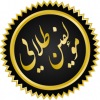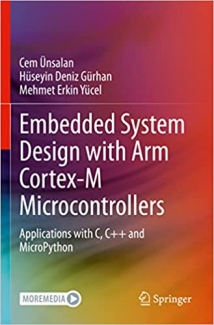جلد سخت سیاه و سفید
Product details
- Publisher : Springer; 1st ed. 2022 edition (May 8, 2022)
- Language : English
- Paperback : 1020 pages
- ISBN-10 : 331995847X
- ISBN-13 : 978-3319958477
کتاب Clean Water and Sanitation (Encyclopedia of the UN Sustainable Development Goals)
The problems related to the process of industrialisation such as biodiversity depletion, climate change and a worsening of health and living conditions, especially but not only in developing countries, intensify. Therefore, there is an increasing need to search for integrated solutions to make development more sustainable. The United Nations has acknowledged the problem and approved the “2030 Agenda for Sustainable Development”. On 1st January 2016, the 17 Sustainable Development Goals (SDGs) of the Agenda officially came into force. These goals cover the three dimensions of sustainable development: economic growth, social inclusion and environmental protection.
The Encyclopedia of the UN Sustainable Development Goals comprehensively addresses the SDGs in an integrated way. It encompasses 17 volumes, each devoted to one of the 17 SDGs. This volume is dedicated to SDG 6 "Ensure availability and sustainable management of water and sanitation for all". Water and sanitation are fundamental to human well-being. Integrated water resources management is essential to ensure availability and sustainable management of water and sanitation for all and to the realization of Sustainable Development.
Concretely, the defined targets are:
- Achieve universal and equitable access to safe and affordable drinking water for all
- Achieve access to adequate and equitable sanitation and hygiene for all and end open defecation, paying special attention to the needs of women and girls and those in vulnerable situations
- Improve water quality by reducing pollution, eliminating dumping and minimizing release of hazardous chemicals and materials, halving the proportion of untreated wastewater and substantially increasing recycling and safe reuse globally
- Substantially increase water-use efficiency across all sectors and ensure sustainable withdrawals and supply of freshwater to address water scarcity and substantially reduce the number of people suffering from water scarcity
- Implement integrated water resources management at all levels, including through transboundary cooperation as appropriate
- Protect and restore water-related ecosystems, including mountains, forests, wetlands, rivers, aquifers and lakes
- Expand international cooperation and capacity-building support to developing countries in water- and sanitation-related activities and programmes, including water harvesting, desalination, water efficiency, wastewater treatment, recycling and reuse technologies
- Support and strengthen the participation of local communities in improving Uwater and sanitation management
Editorial Board
Ulisses M. Azeiteiro, Anabela Marisa Azul, Luciana Brandli, Dominique Darmendrail, Despo Fatta–Kassinos, Walter Leal Filho, Susan Hegarty, Amanda Lange Salvia, Albert Llausàs, Paula Duarte Lopes, Javier Marugán, Fernando Morgado, Wilkister Nyaora Moturi, Karel F. Mulder, Alesia Dedaa Ofori, Sandra Ricart
منابع کتاب کتاب Clean Water and Sanitation (Encyclopedia of the UN Sustainable Development Goals)
مشکلات مربوط به فرآیند صنعتی شدن مانند کاهش تنوع زیستی، تغییرات آب و هوایی و بدتر شدن وضعیت سلامت و زندگی، به ویژه اما نه تنها در کشورهای در حال توسعه، تشدید می شود. بنابراین، نیاز فزاینده ای به جستجوی راه حل های یکپارچه برای پایدارتر کردن توسعه وجود دارد. سازمان ملل متحد این مشکل را پذیرفته و "دستور کار 2030 برای توسعه پایدار" را تصویب کرده است. در اول ژانویه 2016، 17 هدف توسعه پایدار (SDGs) دستور کار به طور رسمی به اجرا درآمد. این اهداف سه بعد توسعه پایدار را شامل می شود: رشد اقتصادی، شمول اجتماعی و حفاظت از محیط زیست.
دایره المعارف اهداف توسعه پایدار سازمان ملل متحد به طور جامع به اهداف توسعه پایدار به روشی یکپارچه می پردازد. این شامل 17 جلد است که هر جلد به یکی از 17 SDG اختصاص دارد. این جلد به SDG 6 " اطمینان از در دسترس بودن و مدیریت پایدار آب و فاضلاب برای همه " اختصاص دارد. آب و فاضلاب برای رفاه انسان ضروری است. مدیریت یکپارچه منابع آب برای اطمینان از در دسترس بودن و مدیریت پایدار آب و فاضلاب برای همه و تحقق توسعه پایدار ضروری است.
به طور مشخص، اهداف تعریف شده عبارتند از:
- دستیابی به دسترسی جهانی و عادلانه به آب آشامیدنی سالم و مقرون به صرفه برای همه
- دستیابی به بهداشت و بهداشت کافی و عادلانه برای همه و پایان دادن به اجابت مزاج باز با توجه ویژه به نیازهای زنان و دختران و کسانی که در شرایط آسیب پذیر هستند.
- بهبود کیفیت آب با کاهش آلودگی، حذف تخلیه و به حداقل رساندن انتشار مواد شیمیایی و مواد خطرناک، نصف کردن نسبت فاضلاب تصفیه نشده و افزایش قابل ملاحظه بازیافت و استفاده مجدد ایمن در سطح جهانی
- افزایش قابل ملاحظه بهره وری مصرف آب در تمام بخش ها و اطمینان از برداشت پایدار و تامین آب شیرین برای رفع کمبود آب و کاهش چشمگیر تعداد افرادی که از کمبود آب رنج می برند.
- اجرای مدیریت یکپارچه منابع آب در همه سطوح، از جمله از طریق همکاری فرامرزی در صورت لزوم
- حفاظت و بازیابی اکوسیستم های مرتبط با آب، از جمله کوه ها، جنگل ها، تالاب ها، رودخانه ها، سفره های زیرزمینی و دریاچه ها
- گسترش همکاری بینالمللی و حمایت از ظرفیتسازی برای کشورهای در حال توسعه در فعالیتها و برنامههای مرتبط با آب و فاضلاب، از جمله برداشت آب، نمکزدایی، بهرهوری آب، تصفیه فاضلاب، بازیافت و فناوریهای استفاده مجدد.
- حمایت و تقویت مشارکت جوامع محلی در بهبود مدیریت Uwater و بهداشت
هیئت تحریریه
Ulisses M. Azeiteiro، Anabela Marisa Azul، Luciana Brandli، Dominique Darmendrail، Despo Fatta-Kassinos، Walter Leal Filho، Susan Hegarty، Amanda Lange Salvia، Albert Llausàs، Paula Duarte Lopes، Javier Naruganatura, کارل اف. مولدر، آلسیا ددا آفوری، ساندرا ریکارت
































ارسال نظر درباره کتاب Clean Water and Sanitation (Encyclopedia of the UN Sustainable Development Goals)